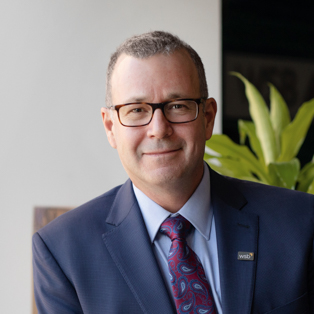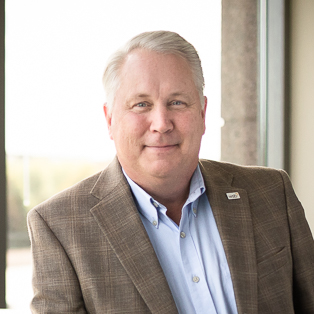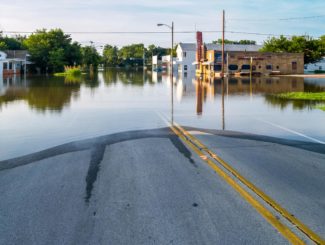Following the Great Recession, many communities were caught playing catch-up as economic growth ramped up again. As many cities face budget deficits and shortfalls in the coming months due to the pandemic, I wondered if there were cost-effective ways to get cities ready for an economic recovery?
I recently sat down with two WSB leaders to unpack what cities and communities can do in times of economic strain to better position themselves for future growth. As many of us who’ve worked in the public sector for years know, the challenges of today will soon pass, and it’s important to be ready for the future.
BF: In your opinion, what is the number one thing a city can do to better prepare themselves for future economic growth?
BB: Review your zoning. Today, communities need more flexibility within zoning. Future opportunities will not come neatly packaged. For instance, consumers interact with retailers differently every year. If your zoning does not allow for an intermixture of residential, light industrial, small-scale fulfillment, artisan, and commercial you may find yourself losing out to communities that welcome a mashup of different uses. I think we’ll see existing commercial and industrial spaces repurposed and that trend will continue into the foreseeable future.
BF: What lingering effects will COVID-19 have on commercial real estate?
JG: I think it’s obvious that we’ll see significant shifts in the way people use office space. How offices are set-up and the way people work has probably changed forever. I also think preparing for the future of what restaurants will look like is important.
BF: What is one piece of advice you would give cities when working with site selectors or future businesses?
BB: You must move beyond the optics. Some cities can be very selective about the types of businesses and industry they allow, and that approach is outdated. If I told you a shingle factory would be a great addition to your community, I would be laughed out of most city council meetings. But I bet if a community withheld judgment and really investigated it they might find that it could be an asset to the community. Manufacturing has changed. What was once considered ugly and undesirable can now be a modern asset that provides hundreds of jobs and increases the communities tax base.
BF: It’s hard to balance all the moving parts of economic development. What is your advice for cities who want to strengthen their economic development priorities?
JG: Don’t be afraid to look for outside help. There are organizations and professionals who dedicate their careers to economic development and that expertise can be very valuable. The best thing about economic development are the opportunities for collaboration between public, private and nonprofit entities. This combination of expertise can really help bolster a community and prepare them for opportunities down the road.
BF: Equity is a big topic in today’s political and social landscape. How does equity fit into economic growth?
BB: Building equity within a community has multiple aspects. Most communities think only of affordable housing. However, equity requires ownership and opportunity. How does your community increase ownership? How does your development process invite participation among diverse groups? Are minorities encouraged to participate in your economic development process or are they not present? Competitive communities will need to answer these questions if they are to understand their prospects in this new political and social landscape.
BF: Funding seems to be the most common barrier to economic development. What would you say to cities that are facing funding issues?
BB: Funding can be challenging, but cities need to be creative. Grants and TIF should not be your only tools. Get creative. Talk to and partner with the private and non-profit sector on creative, community-based and mutually beneficial funding opportunities. Get to know contractors who have insight into the modular building movement and consider how your architectural standards might affect project affordability. Time is money. If modular construction and streamlined approvals can knock six months off a project schedule that is six months of lease payments that can be brought into the project proforma as equity.
BF: How can cities best prepare for potential large expansions in our region?
JG: Get your sites shovel ready! Although there are many definitions of what it means to be shovel ready, following the Site Selector Guild’s definition will help you take your sites to the next level. This will help you be prepared when opportunities arise. As Bob mentions above, time is money. When turnaround time for new projects is shortened, jobs and tax base creation result in better cash flow and performance for the development.
Bart Fischer has over two decades of experience in public administration. Throughout his tenure, he’s worked in five Minnesota communities as the city or assistant city administrator. Bart joined our firm in 2019 as a senior public administrator and focuses on lending his public service expertise to our clients.

A Principal at WSB, Bob leads WSB’s Land Development Services. Over his 26-year career, Bob has worked for both public and private sector clients, beginning as a water resources engineer and evolving into his current land development role. Bob’s current interest – and a focus for WSB’s Land Development Group – is sustainable redevelopment within urban communities.

Jim has over 25 years of experience in economic development, including both redevelopment and greenfield development projects. Most recently, Jim was the State of Minnesota’s Business Development Representative for the Twin Cities metro area, responsible for attracting new businesses to the State and assisting businesses in expanding their current locations. In addition, he managed the State’s Shovel Ready Certification Program which prepares a community for projects that are interested in locating or expanding in their community.


